
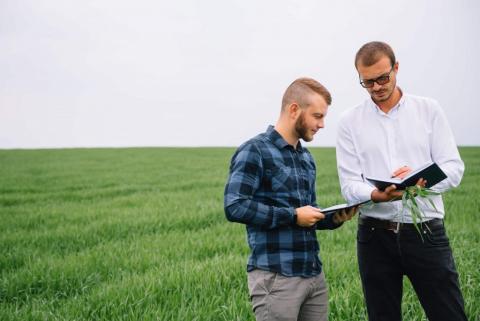

What is SCIA-AKIS?
The Agricultural Knowledge and Innovation System (AKIS), is the combined organization and flows of knowledge between people, organizations and institutions that use and generate knowledge for use in agriculture and related fields.
What does AKIS stand for?
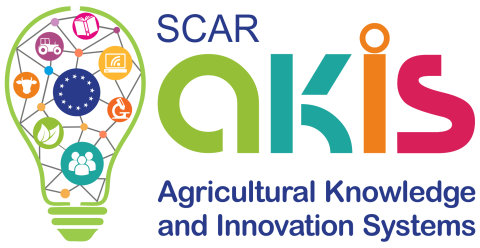
SCIA Sistema de Conocimiento e Innovación en Agricultura (en inglés, Agricultural Knowledge and Innovation Systems, AKIS).

Agriculture is the area in which the concept of the system is framed. This is not just agriculture as such, but rather it is intended to address its broad sense, including rural communities, food and non-food systems, biodiversity, environment and climate, and consumers.

Knowledge : The focus is on better use of existing knowledge in the field of research and practice.

Innovation The ultimate goal of the system is to create real and practical solutions to the challenges of the agri-food sector and rural communities.

The System : It is essential to connect people in knowledge and innovation ecosystems where knowledge is co-created, used and shared widely.
Objective of the SCIA-AKIS
With a multi-stakeholder and collaborative approach and in line with the sustainability objectives of the CAP 2023-2027 and the Strategic Plan of the CAP of Spain 2023-2027 (PEPAC) , the objective of AKIS is to ensure that agricultural knowledge and innovations in the sector are accessible to all people who use them.
Who is part of AKIS?
Anyone who produces or uses knowledge related to the agri-food sector and rural communities is part of AKIS: producers, advisors, researchers, companies, associations, public authorities, media, training entities, consumers and citizens.
In a well-functioning SCIA-AKIS system, each actor contributes by sharing the best solutions for the implementation of new or improved production models. This may be done through the dissemination of solutions that have proven useful (in online format or at demonstration events, among others), or through specialized training aimed at advisors or producers, the creation of networks, or the focus of research on the search for practical solutions that meet the current and future needs of the sector.
Within SCIA-AKIS , advisors play a fundamental role: they offer producers updated and personalized information so that they can make their decisions, they give advice in various areas ranging from agricultural and livestock production to financial, commercial management, legal, technological and environmental aspects, among others; and finally, they act as agents of innovation, promoting change towards more productive, sustainable or competitive systems. In addition, a multiplier effect must be considered when sharing practical knowledge throughout their network of influence.
Background
The AKIS concept emerged in 2008 under the French presidency of the Council. In 2009 , within the Standing Committee on Agricultural Research (SCAR), the European Commission noted that European agriculture and agribusiness needed knowledge from many different sources to compete with quality products in a globalized world. New knowledge is generated by farmers, researchers (basic and applied) and private companies. The old “linear” model of technology transfer (from scientists to users) was outdated and had to be replaced by an interactive model of network systems that integrated knowledge production, adaptation, advice and support. education.
In 2010 , the Expert Working Group on Agricultural Knowledge and Innovation Systems (SWG SCAR-AKIS) was created and would publish the first report “Agricultural knowledge and innovation systems in transition – reflection paper” in spring 2012 . It provided an overview of thinking on innovation policy, the concept of AKIS and drew attention to the concept of social innovation. It documented the experiences of EU Member States and looked to the future.
Since then, the issue has become even more relevant in the changing European political context, going through the period covered by the Europe 2020 Strategy for intelligent, sustainable and inclusive growth, (both in the field of R&D&I Policy as the Common Agricultural Policy, CAP). The SCIA-AKIS analysis of Member States focused on the collection and analysis of national and European experiences with interactive methods useful for promoting agricultural innovation. The topics of debate were, among others, innovative innovation policies, cross-border collaboration and the incentive of system actors, the incentive of researchers and the role that ICT can play in innovation. The conclusions are collected in the report “Agricultural Knowledge and Innovation Systems Towards 2020- an orientation paper on linking innovation and research”.
SCAR AKIS and AEI-AGRI
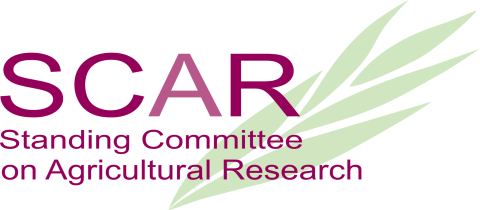
The EU Standing Committee on Agricultural Research ( SCAR ) is mandated by the Council of the EU to play a key role in coordinating agricultural research efforts across the European Research Area ( ERA ). Currently, SCAR represents 37 countries, including ministries and other organisations such as research councils, from all EU Member States, with Candidate and Associated Countries as observers.
The CPIA has become a respected source of independent advice on European agricultural research and the bioeconomy in general, as well as acting as a catalyst for the coordination of national research programmes and contributing to the creation of an integrated ERA.
The Committee plays an important role in research and innovation and in removing barriers to innovation by facilitating collaboration between the public-public and public-private sectors to work together to deliver innovations addressing the bioeconomy. The CPIA is based on four main activities:
- Strategic policy advice in support of the development of research initiatives, various policies and policy instruments, etc.
- Developing a robust foresight process to address the wide range of challenges facing agriculture and the bioeconomy in general.
- Develop common research agendas as a basis for further multilateralism (including harmonisation of national and EU programmes).
- Mapping CPIA members’ research capabilities for greater collaboration.

Within the CPIA there is a Strategic Working Group on AKIS ( SCAR AKIS ) whose mission is to create a European knowledge and innovation network focused specifically on working with and for farmers. Its objectives are the following:
- Improving the functioning of knowledge and innovation systems in the bioeconomy.
- Apply the results of all foresight studies to stimulate appropriate research and innovation activities, knowledge generation and knowledge sharing.
- Covering all agri-food and biomass chains, from producer to consumer, with a systemic approach.
The planned activities of SCAR AKIS are as follows:
- Focus on improving the functioning of knowledge and innovation systems in the bioeconomy.
- Achieve greater impact from the application of the Multi-Stakeholder Approach in AKIS.
- Define the role of education in AKIS.
- Define the role of digitalisation and e-infrastructures in knowledge sharing.
- Defining the role of social innovation and inclusion in EU AKIS.
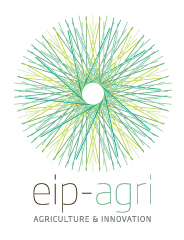
The European Partnership for Innovation in Agricultural Productivity and Sustainability, AEI-AGRI ( European Innovation Partnership for Agricultural Productivity and Sustainability, EIP-AGRI ), is an initiative created by the European Commission in 2012 that aims to promote a competitive and sustainable agricultural and forestry sector that “achieves more with less”.
The AEI-AGRI supports AKIS by connecting policies and instruments to accelerate innovation, and contributes to the objectives of the CAP through the European Policies, the Rural Development Policy and the R&D&I Policy, which stimulate open and interactive innovation and the exchange of knowledge.
PAC-Política Desarrollo Rural (proyectos nacionales /regionales)
- Fondos FEADER + nacionales
- Grupos operativos: agrupaciones mínimo 2 miembros interesados en encontrar soluciones prácticas e innovadoras a problemas específicos; con participación activa del sector agroalimentario; desarrollan un proyecto innovador
- Ayudas para el grupo operativo (para creación GO y/o implementación proyecto)
- 2014-2022: medida cooperación Programas Desarrollo Rural.
- 2023-2027: intervención cooperación del Plan Estratégico Nacional.
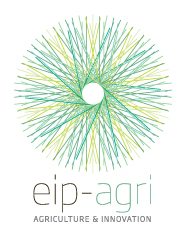
Política UE I+D+i (proyectos europeos transnacionales)
- Fondos europeos.
- Proyectos de investigación para proveer de información básica para acciones innovadoras.
- Formatos de innovación interactiva: ayudas a proyectos con enfoque multi-actor y redes temáticas en las que genuinamente se involucra a agricultores, asesores, empresas, etc., a lo largo del proyecto.
- 2014-2020: Horizonte 2020 en reto social 2.
- 2021-2027: Horizonte Europa en cluster 6.
AKIS in the CAP 23-27
The reform of the CAP 2023-2027 establishes a new approach with which Member States must establish the details of the interventions or measures of the new CAP, through a Strategic Plan ( PEPAC ) .
The CAP 2023-27 provides several instruments to promote the SCIA-AKIS. Thus, the PEPAC has had to define the strategic approach to promote the governance of the SCIA-AKIS and the integration of research, advisory services, and the CAP Network in the system.
In it Strategic Plan of the CAP of Spain The importance of AKIS in the Transversal Objective ( OT ) “Knowledge and Innovation” whose purpose is to modernize the sector through the promotion and sharing of knowledge, innovation and digitalization in agricultural and rural areas and promote their adoption.
He OT of PEPAC It is based on an analysis multi-actor which establishes needs relating to Innovation, digitalization, training and advice which are addressed through interventions aimed at supporting the cooperation of operational groups outside and within AEI-AGRI , knowledge transfer and training and information activities and advisory services.
European projects working on the AKIS theme
The reinforcement of SCIA-AKIS through the EU Research and Innovation Framework Programmes (Horizon Europe and Horizon 2020 in the previous period) aims to accelerate innovation and uptake of research results needed for transformative changes in the rural sector and communities. This includes boosting the multi-stakeholder approach , promoting interactive innovation and co-ownership of results by users, establishing structural networks within national/regional/local AKIS, as well as fostering synergies with other EU funds, especially the CAP, which provides further support to many new or enhanced tools to build national AKIS, for example the successful EIP-AGRI.
In the document "Enhancing human capital and boosting innovation systems" You will find several multi-stakeholder projects that improve human capital and boost innovation systems within the framework of the Horizon 2020 and Horizon Europe projects.

EU-FarmBook es una plataforma digital de escala regional nacional y europea que da respuesta a las necesidades reales de agricultores, selvicultores y asesores a través del acceso a objetos de conocimiento de confianza que cumplen con los principios FAIR de datos: localizables (F), accesibles (A), interoperables (I) y reutilizables (R).

ModernAKIS es un proyecto que tiene como objetivo mejorar las capacidades de los actores de AKIS para aprovechar los recursos individuales, organizacionales y sistémicos necesarios para la transformación hacía unos AKIS más coherentes, efectivos y eficientes y la transición hacia una gestión y uso más sostenible de los recursos naturales en la agricultura y la selvicultura
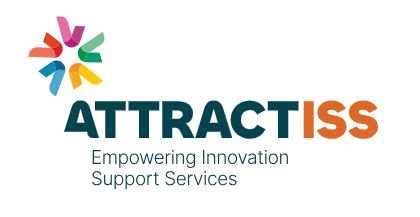
El objetivo del proyecto ATTRACTISS es mejorar e incorporar competencias, enfoques, instrumentos y métodos de gobernanza para los Estados Miembro AKIS y específicamente para los Servicios de Apoyo a la Innovación como un actor crucial de AKIS, y acelerar las ideas innovadoras y generar soluciones para el proceso de transición hacia una agricultura y silvicultura más sostenibles.

PREMIERE es un proyecto financiado por la Unión Europea que tiene como objetivo fortalecer el enfoque multiactor apoyando el desarrollo de propuestas de proyectos más relevantes, coherentes y bien preparadas. El enfoque multiactor busca que los procesos de investigación e innovación sean más colaborativos e inclusivos.



